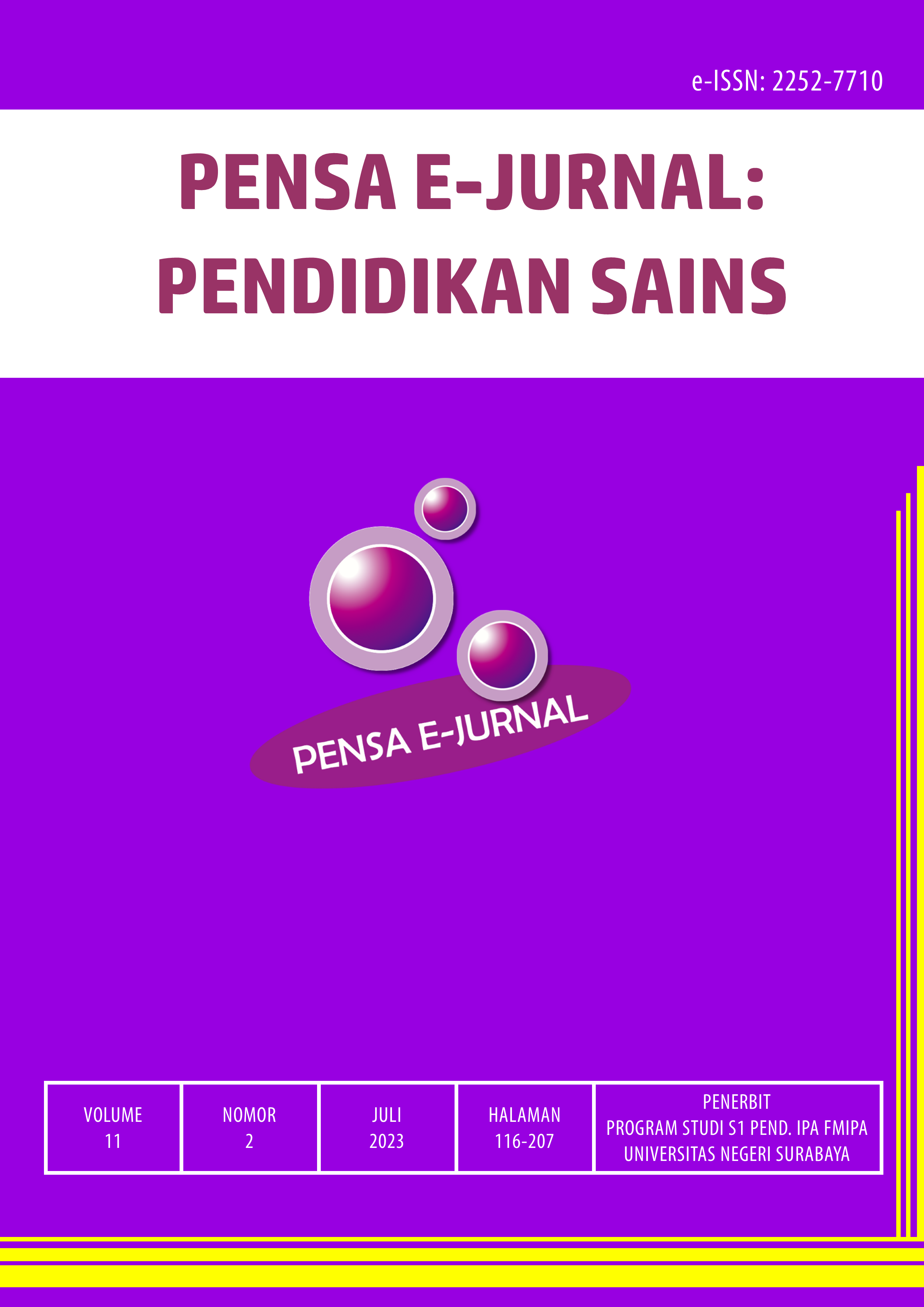ANALISIS AKTIVITAS BELAJAR SISWA DENGAN PENERAPAN MODEL PEMBELAJARAN KOOPERATIF TIPE BERPASANGAN DENGAN LKPD BERBASIS KASUS
DOI:
https://doi.org/10.26740/pensa.v11i2.54696Keywords:
make a match cooperative type, case-based student worksheetsDownloads
Download data is not yet available.
Downloads
Published
2023-07-31
How to Cite
Laila, A., Qosyim, A., & Mahdiannur, M. A. (2023). ANALISIS AKTIVITAS BELAJAR SISWA DENGAN PENERAPAN MODEL PEMBELAJARAN KOOPERATIF TIPE BERPASANGAN DENGAN LKPD BERBASIS KASUS. PENSA E-JURNAL: PENDIDIKAN SAINS, 11(2), 194–200. https://doi.org/10.26740/pensa.v11i2.54696
Issue
Section
Articles
 Abstract views: 101
,
Abstract views: 101
, PDF Downloads: 225
PDF Downloads: 225

















